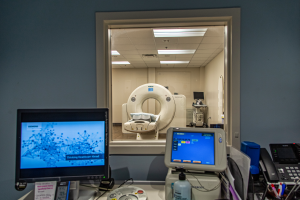Ever had a cramp in the middle of a sports activity and just brushed it off? While this generally happens to most gladiators on the field or court, it’s highly recommended to be aware of how these unique injuries occur. As the weather gets warmer, people of all ages get more involved in outdoor activities, mostly organized sports. This makes it easier for people to be susceptible to dehydration, weakening the body and making sports-related injuries more common. Let’s discuss how your water intake might be the hidden factor behind the sprain, strain, or fracture.
Dehydration occurs when your body doesn’t have the proper amount of fluids to function properly. This could be due to a lack of water intake, or the body is losing more fluid than it takes in. This imbalance can lead to a variety of symptoms, including:
- Dry mouth
- Rapid heart rate
- Sunken eyes
- Less urination
- Dark-colored urine
- Unbearable thirst
- Fatigue
- Confusion
- Weakness
- Dizziness

Research from the Gatorade Sports Science Institute found that a lack of fluid intake can affect more than how you feel internally; it also affects muscle performance, joint lubrication, and overall body function. Studies also show that stress from intense heat may compromise muscle structure and functionality. Dehydration does a lot more than make you feel bad, it can affect your overall performance and delay recovery from sports or exercise-induced injuries. Some common dehydration-related sports injuries include muscle strains and cramps, sprains, and fractures.
The simple way to prevent dehydration is by staying hydrated. It’s also best to understand your body and recognize signs early–if you’re feeling sluggish or off your game, it might be a hydration issue, not a fitness one. Here are some practical ways to make sure you stay hydrated:
- Drink water throughout the day, not just during physical activity
- Pay attention to your urine color (Pale yellow = good)
- Replace electrolytes after intense training
- Don’t rely on thirst alone; that’s a delayed signal.
Dehydration can turn a simple injury into something more dangerous if not treated quickly. It’s crucial to recognize the signs of intense dehydration and how that can turn into a situation that requires emergency medical care. Some warning signs to watch out for include:
- Dizziness, confusion, and fainting
- Severe enduring cramps
- Rapid breathing
- Drowsiness
- Irritability
- Heat-related symptoms (heat exhaustion or stroke)
- Excessive sweating
 Surepoint Emergency Center is fully equipped to handle sports-related injuries and dehydration emergencies. As an alternative to the traditional hospital ER experience, we include shorter wait times (on average, 7 minutes), emergency imaging and orthopedic care, IV fluids, and compassionate staff who know how to treat patients with care and respect. Mild dehydration can escalate quickly, becoming life-threatening before you know it. At the first sign of an emergency, don’t hesitate–visit your nearest Surepoint Emergency Center today!
Surepoint Emergency Center is fully equipped to handle sports-related injuries and dehydration emergencies. As an alternative to the traditional hospital ER experience, we include shorter wait times (on average, 7 minutes), emergency imaging and orthopedic care, IV fluids, and compassionate staff who know how to treat patients with care and respect. Mild dehydration can escalate quickly, becoming life-threatening before you know it. At the first sign of an emergency, don’t hesitate–visit your nearest Surepoint Emergency Center today!
Surepoint Emergency Center is a modern emergency medical facility open 24/7. As an alternative to the traditional hospital ER experience, we offer convenience and minimal wait time, along with highly-trained emergency medical staff and state-of-the-art equipment.
Our top priority is bringing high-quality emergency care, quickly and easily to your family. We are committed to making patients feel better faster in a comforting and compassionate environment.
Expert convenient care in your neighborhood.



References
- King, M., PhD, & B. Baker, L., PhD. (2020). DEHYDRATION AND EXERCISE-INDUCED MUSCLE DAMAGE: IMPLICATIONS FOR RECOVERY. Gatorade Sports Science Institute, 33(No. 207), SSE #207. https://www.gssiweb.org/docs/default-source/sse-docs/king-baker_sse_207.pdf?sfvrsn=2
Dehydration – Symptoms & causes – Mayo Clinic. (2025, May 2). Mayo Clinic. https://www.mayoclinic.org/diseases-conditions/dehydration/symptoms-causes/syc-20354086



